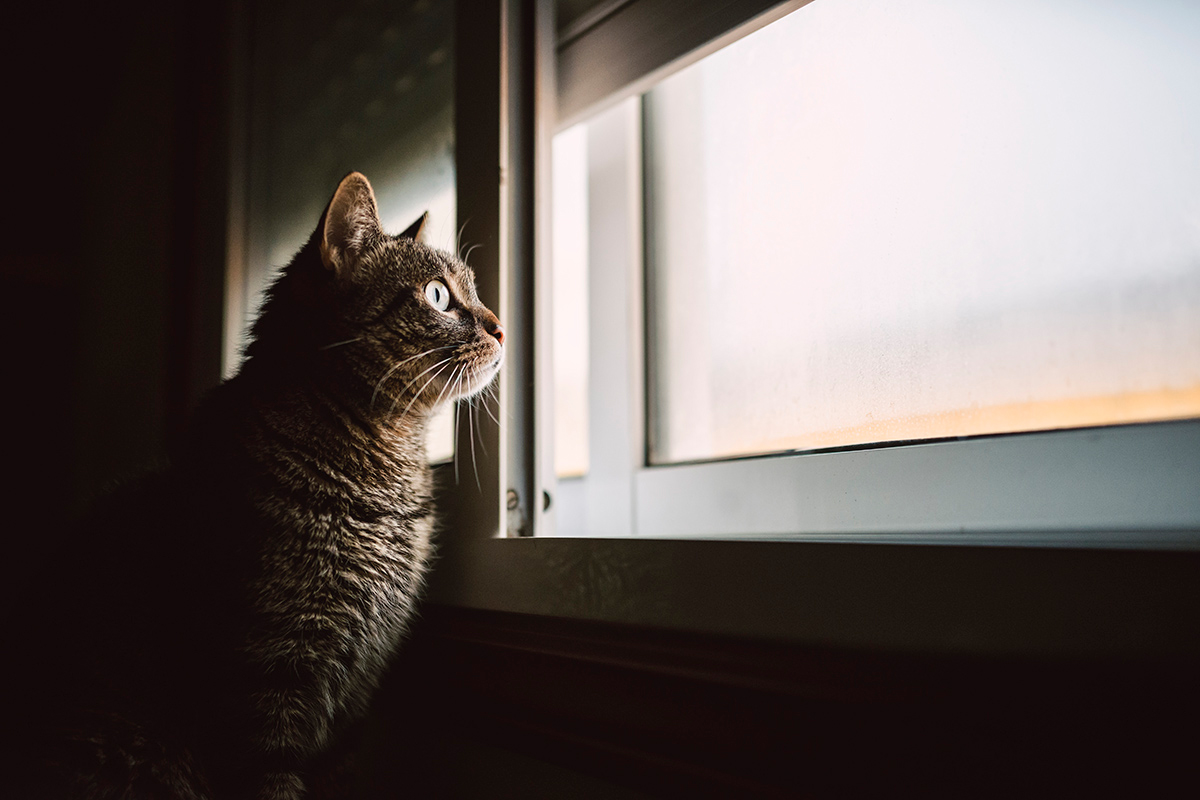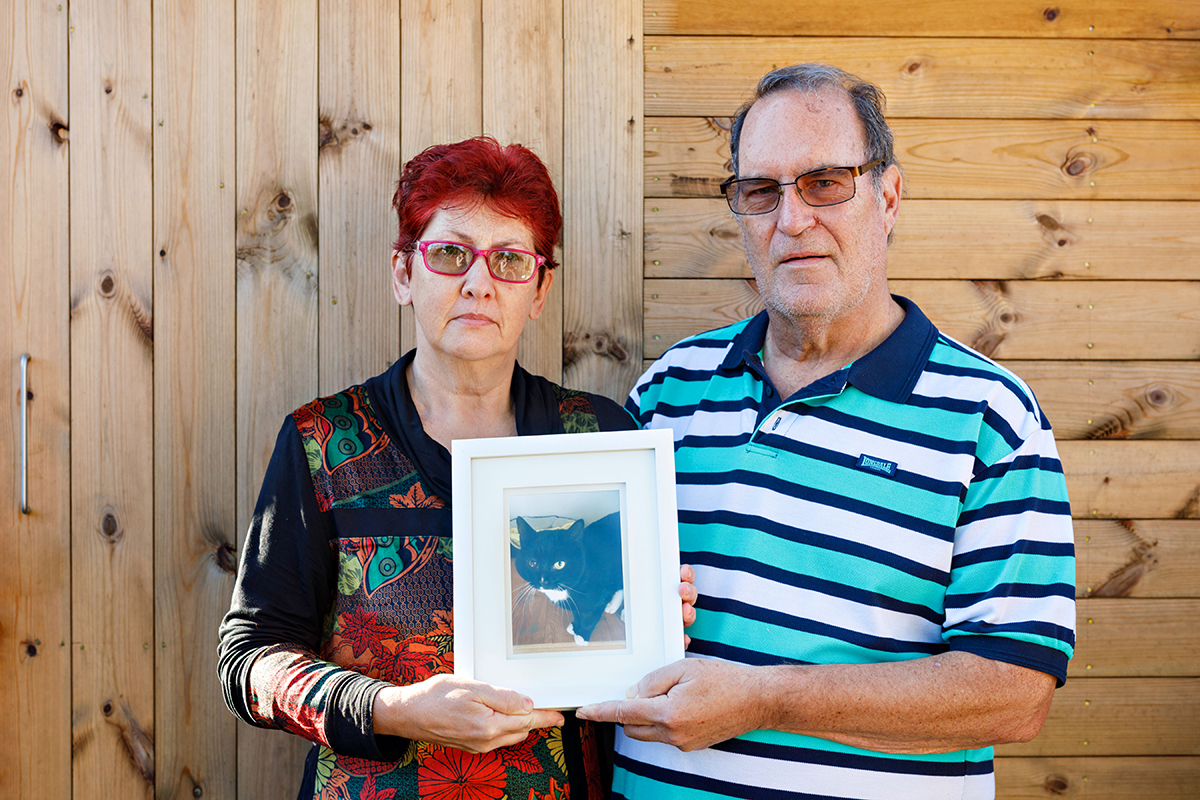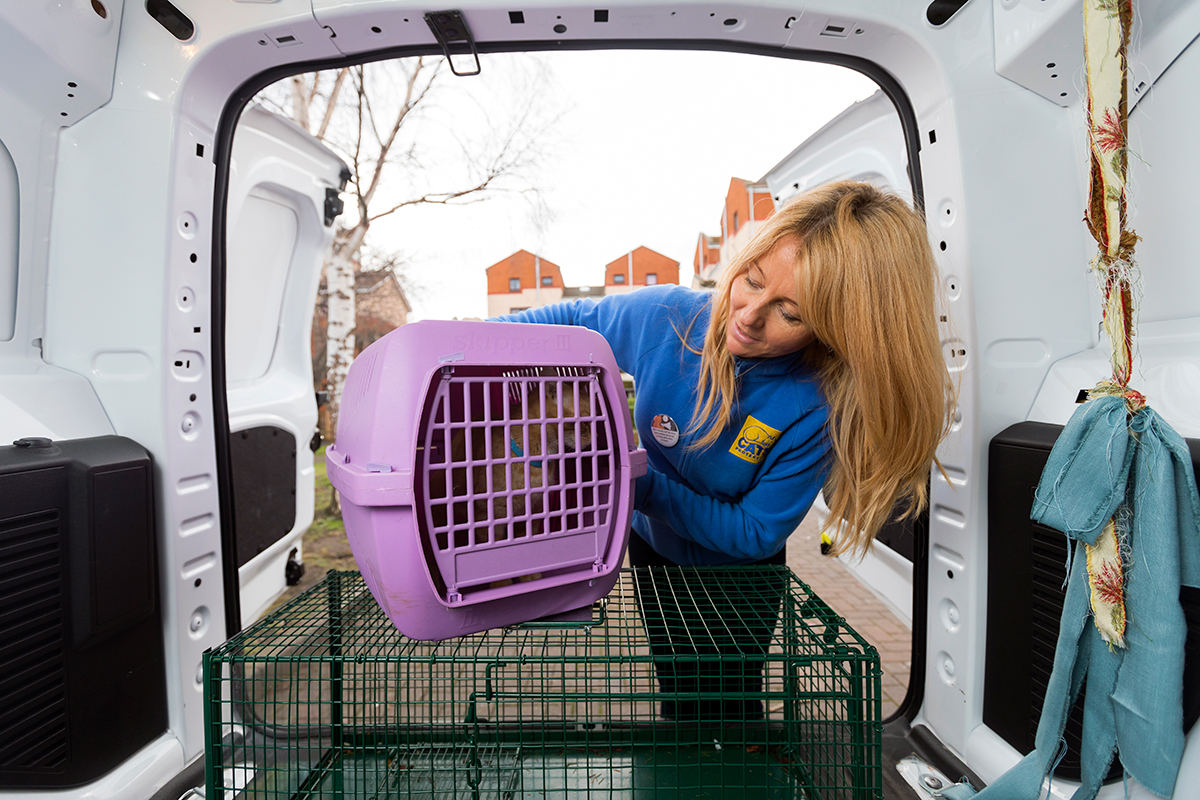You are viewing 1 of your 1 free articles
Paws for thought: why landlords’ differing pet policies matter for tenants’ well-being
Social landlords’ pet policies are anything but consistent, and this can have a big impact on tenant’s well-being. New research suggests there is much to do. Jane Fae finds out more
A quick quiz question: what can reduce blood pressure, lower cholesterol, strengthen the immune system and even combat feelings of loneliness?
The answer has four legs and likes hunting goldfish.
As anyone who has seen or read A Street Cat Named Bob will tell you, cats are good for you.
And new research released this week (see attachment below) shows that social landlords are beginning to recognise that our feline friends – and pets in general – can have benefits beyond just keeping the local rat population down.
A survey from cat welfare charity Cats Protection shows that 82% of housing associations and local authorities allow tenants to keep cats in at least some of their properties (including those that say they allow pets but don’t specify the animal).
And cat ownership seems to make for happier residents, with more than nine in 10 landlord respondents agreeing that keeping pets had a positive impact on tenants.
That all sounds like good news for cat-loving tenants.
But while housing associations and local authorities tend to be more accommodating on pet ownership than landlords in the private rented sector – where only 42% allow pets – policy among them is far from uniform.
Stroud District Council is one landlord that is moving to clarify its pet policy and, according to Mattie Ross, councillor and former executive lead for housing, make it fairer.
“Our council always allowed pets in general needs properties as long as there was some means of access to [an] outside area in communal areas,” she explains. “So they were permitted on the ground floor or in properties with a fire escape.”
“We did not have a no-pet policy, but only allowed one animal. In sheltered housing tenants were allowed to take a pet in with them, but when it died the tenant was not allowed to replace it. This always seemed a bit draconian.”
A survey carried out by the council found that “overwhelmingly people would want a pet”, says Ms Ross.
She adds: “We know there are loads of benefits to this... some people will not go into social housing because they have pets. And if they are in a bad place psychologically, removing their pets will make it worse."
Related Files
Following a review, Stroud now has a more positive pet policy, allowing sheltered housing tenants to keep a pet with the council’s permission and issuing guidance for owners.
“We are not prescriptive,” continues Ms Ross. “We don’t say that tenants have to have pet insurance, but we do say it is advisable. We say that in communal areas pets should be restrained, and in sheltered housing pets require inoculation. And fleas and such need to be treated.”
For many tenants pet policy has an impact on where they choose to live. Some tenants cite cat-friendly policies as a factor in selecting a property, with others saying they have moved because their landlord would not allow pets.
Furthermore, when it comes to cats in particular there is too often a lack of guidance. Some 89% of social landlords that allow cats do not have policies in place requiring them to be neutered, while 93% do not require microchipping or vaccination.
The owners' story
During its research, Cats Protection unearthed some of the heartbreaking stories behind the statistics.
Dilys and partner Steve (pictured above) were forced to give their cat Buster up for rehoming because they couldn’t find a property that allowed cats.
“We were devastated, and the whole thing was very traumatic,” she says.
“I love cats, but I now find it very hard to stroke one when I see one in the street – it’s almost as if I’m too scared to get attached or enjoy their company as I know I cannot have my own pet cat.”
According to Jacqui Cuff, Cats Protection’s head of advocacy and government relations, this can lead to irresponsible ownership, with cats allowed to breed repeatedly or become a nuisance for neighbours.
For Cats Protection, responsible pet ownership – and policies that help bring this about – is the ultimate goal.
“Our aim is to change landlord views and inform tenants,” explains Ms Cuff. “We will be going out to at least six housing shows next year, and this is not a one-off campaign. It is ongoing and will be carrying on for years and years.”
Cats Protection also wants to take its cause to Westminster.
Ms Cuff continues: “We would like all political parties to put something in their manifestos linked to responsible cat ownership and housing. We would also like them to put something in housing policies about working to encourage private landlords to say pets [will be] considered and to remove ‘no pets’ clauses.”
“Our aim is to change landlord views and inform tenants", Jacqui Cuff, Cats Protection
The report also targets a number of what it considers to be common myths about cats, held by some landlords. For instance, in the private sector 62% of landlords which don’t allow cats worry that doing so will lead to damage to property, contents or gardens. However, of those that do allow cats, just 17% report such problems.
Similarly, over a third of landlords (34%) that don’t allow cats cite flea infestation as a reason for the ban, but just 2% of those that allow cats say they have experienced it.
The report identifies a gradual progression typified by three broad types of cat policy among landlords.
In the private sector, the most common type is a blanket ban: no cats allowed. Although this is far less common in social housing, some landlords nevertheless have restrictive policies, such as only allowing one cat, or only allowing cats already owned by a tenant.
At the next level are most social landlords, which tend to allow cats, but with conditions.
What Cats Protection is calling for, however, is a tenancy agreement that encourages responsible and reasonable cat ownership. Such an agreement would include a requirement for tenants to ensure cats are neutered, microchipped and vaccinated, as well as limiting the number of cats per household.
This is the policy Stroud has adopted. And, according to Ms Ross, it is bearing fruit: “There have been some real positives in terms of feedback, and we know that this policy creates community.”
"In the private sector, the most common type is a blanket ban: no cats allowed"
Cats Protection believes there is parliamentary support for the pet positive measures it is proposing – although when asked about their policy on tenant pet ownership, none of the three main parties in England responded.
That said, legislation currently going through parliament in the form of the Tenant Fees Bill could help by making certain charges to do with pet ownership unlawful. This could be used to stop landlords charging excess deposits for pets.
The government’s loneliness strategy also has a part to play. A report released earlier this year recognised the link between loneliness and early death, with the government following it up by committing £20m to tackle the problem.
David Drew, MP for Stroud, praises his local council for its decision to allow cats or dogs in sheltered units, calling it “a really positive move”.
Responsible cat ownership
Cats Protection is working with a community neutering officer at Wales & West Housing, in Merthyr Tydfil, to assist with reaching cat owners.
It is helping the landlord deliver flyers, run joint events, post on social media, text tenants and get in direct contact with those who need help.
The partnership has also enabled links to other key agencies working in the area.
In addition, Cats Protection provides neutering vouchers for some housing providers across the UK, so they can give them directly to their tenants when they see un-neutered pet cats. This removes barriers to accessing a voucher for some people
He adds: “Having a pet, particularly a cat, is a great way to combat loneliness.”
However, Ms Cuff is critical of the government’s focus on building “strong social relationships” based on families, friends and communities.
“It is counter-intuitive for people to be forced into doing stuff that makes them more lonely,” she explains. “We are very disappointed by the emphasis on going out and meeting people in the loneliness strategy, and lack of attention to tackling loneliness within the home, which is where pets can help.”
And it isn’t just cats that campaigners think can help improve tenants’ lives. There are similar campaigns for dogs, birds, fish and even more exotic animals.
“Having a pet, particularly a cat, is a great way to combat loneliness" David Drew MP
The Dogs Trust has for many years run a similar campaign called ‘Lets with Pets’ and is now working alongside Cats Protection.
Ultimately, what campaigners want is for tenants to have more choice, and Cats Protection is keen to work with landlords that encourage responsible pet ownership.
It has been working with Leeds City Council, for example, on coming up with a new set of policies, which include encouraging tenants to neuter their cats.
As Katie Dixon-White, housing manager for the council, explains: “I think anything we can do as a landlord to support somebody’s choice around their pet ownership is a really important thing as long as we encourage responsible pet ownership.”
Homes 2018
Homes 2018 is the premier event experience for those working at a high level in residential development, strategic asset management and procurement.
As well as Kit Malthouse, housing minister, as the closing keynote speech, there will be conference sessions on the world’s tallest modular towers, micro-living and the UK’s largest self and custom build community.
Plus, find the latest product innovation and meet over 120 exhibitors, while networking with 4,000+ industry peers.
Homes 2018 will take place at Olympia, west London on November 28 and 29.














